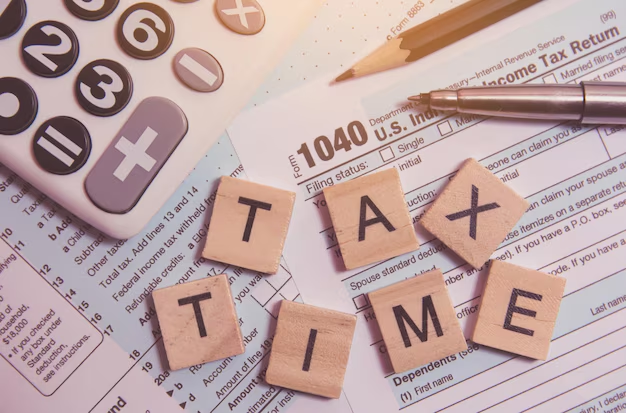
Form 16 Of Income Tax And Its Types: Explained!
Are you an employed individual ready to submit your income tax return? If so, remember that Form 16 is necessary for employees in India and is an essential paper for submitting income tax. To manage their taxes effectively, both experienced and novice workers must understand Form 16 and its various versions. Let’s explore the different types of Form 16, delve into its details, and highlight its importance in the Indian tax structure.
What Does Form 16 Entail?
Form 16 of income tax is a formal paper employers give employees who receive a salary. It includes the TDS deducted from their salary earnings. This document is crucial for connecting an employee’s income, the employer’s deductions, and the payments sent to authorities. It summarises a person’s earnings and taxes paid throughout the calendar year and is distributed after the year.

Structure of Form 16
Form 16 is divided into two main parts:
1. Part A contains thorough information about employees and employers. It includes:
– Employee’s Permanent Account Number (PAN)
– Employer’s Tax Deduction and Collection Account Number (TAN)
– Assessment Year
– Period of Employment
– Summary of TDS deducted and deposited
2. Part B: In this part, there is a comprehensive examination of the employee’s salary structure and the impact of taxes. This part includes:
– Gross Salary
– Breakdown of allowances and perquisites
– Deductions under various sections of the Income Tax Act
– Income chargeable under the head ‘Salaries’
– Income from other sources (if any)
– Gross total income
– Deductions under Chapter VI-A
– Total income
– Tax payable and tax deducted
Types of Form 16
The Indian tax system includes three TDS forms, with Form 16 of income tax being the most widely recognised for income tax. Let’s explore each of these.
1. Form 16
Focuses on the standard document given to employees who receive a salary. Some key aspects of Form 16 are:
– Purpose: It acts as evidence of TDS on income from salary.
– Issuer: Employers are responsible for creating and providing Form 16 to their employees.
– Timing: Form 16 must be issued by employers by June 15 of the next financial year.
– Applicability: It is mandatory for employees whose income is above the basic exemption limit.
Form 16 is crucial for employees as it contains all the necessary information for accurately filing their Income Tax Return (ITR).
2. Form 16A
Form 16 is for salary income, while Form 16A is for TDS on income from other sources. Below are the critical details about Form 16A:
– Purpose: It serves as proof of TDS on non-salary income.
– Issuer: Form 16A can be issued by different entities, including banks (for interest on fixed deposits), companies (for dividends), tenants (for rent paid), and clients (for professional fees).
– Content: Similar to Form 16, it contains details of the income and the TDS deducted.
– Frequency: Form 16A can be issued quarterly or as per specific deductions, unlike Form 16, which is issued annually.
Form 16A is particularly important for individuals with multiple income sources besides their salary, such as freelancers, consultants, or individuals with significant investment income.
3. Form 16B
Form 16B is critical in high-value property transactions by ensuring buyers and sellers comply with tax regulations.
– Purpose: Form 16B pertains to real estate deals and is used explicitly to sell immovable property for TDS purposes.
– Issuer: The buyer is responsible for issuing Form 16B to the seller upon completing the property transaction.
– Applicability: The form becomes relevant when the property’s sale value exceeds ₹50 lakhs.
– Content: It includes details of the property transaction, the deducted TDS amount, and the specific amount on which TDS was deducted.
Form 16B is crucial in ensuring buyer and seller compliance with tax regulations for high-value property transactions.
Also Read: What are the Copyright Laws in India?
The Importance of Form 16
All individuals in employment must understand the significance of Form 16. The following explains why Form 16 holds such importance:
1. Verification of Earnings and Taxation
Form 16 is an authorised document validating your income and tax obligations for the financial year. Therefore, it is relevant in various financial scenarios.
– Seeking loans (such as home loans, personal loans, etc.)
– Visa requests
– Renting accommodations
2. Simplified Tax Filing
Form 16 makes it easier to file your income tax return (ITR) by providing pre-filled information with most of the required details, which reduces the likelihood of errors.
- The information in Form 16 of income tax comes directly from your employer, ensuring the accuracy of your tax submissions.
- Form 16 saves time and effort by eliminating the need to calculate income and tax details manually when filing your ITR.
3. Assistance with Tax Planning
Form 16 is a valuable resource for tax planning. It provides a comprehensive summary of your earnings and tax obligations.
- Recognition of Deductions: It enables you to ascertain the tax-saving investments and expenditures you have already undertaken.
- Planning Ahead: By utilising Form 16 for the present year, you can devise a strategy for your investments and expenses to reduce your tax responsibilities in the next financial year.
4. Ensures Employer Compliance
Form 16 of income tax also proves that your employer has fulfilled their responsibility of deducting and depositing TDS on your behalf. This protects you from any potential issues arising from employer non-compliance.
How to Read and Verify Your Form 16
When understanding its importance, it’s crucial to be familiar with reviewing and verifying your Form 16. These are the key aspects to consider:
1. Personal Information: Double-check that your name, PAN, and other personal details are accurate.
2. Employer’s Information: Ensure the correctness of your employer’s name, address, and TAN.
3. Breakdown of Salary: Verify the components of your salary on your pay slips to ensure they are represented correctly.
4. Tax Calculation: Examine the tax calculation section to understand how your tax liability was computed.
5. TDS Amount: Confirm that the specified TDS amount matches the total tax deducted from your salary throughout the year.
6. Digital Signature: Ensure that the document includes a valid digital signature from an authorised individual in your company.
Also Read: Laws For Divorce in India: What Can A Women Demand?
What to Do if You Don’t Receive Form 16
If you have not received your Form 16 by the deadline (June 15), follow these steps:
1. Contact HR: Get in touch with your company’s HR department or the person responsible for payroll.
2. Check Online: Many companies offer Form 16 via employee portals. Check if you can download it yourself.
3. Refer to Form 26AS: If you need help obtaining Form 16, refer to Form 26AS, which is available on the income tax website and contains similar information.
4. Lodge a Complaint: If the employer fails to comply, you can complain to the Income Tax Department.
Conclusion
In conclusion, Form 16 and its variations are essential for comprehending the Indian tax system, particularly for paid individuals. They give helpful financial information, ensure regulatory compliance, and speed up tax filing. Regardless of how comprehensive Form 16 is, you must keep personal records of your income and investments to check their accuracy and handle any differences when filing your taxes. Staying updated on Forms 16, 16A, and 16B variations is critical as tax regulations change. This will help you manage your tax duties and make sound financial decisions.
Also Read: Arrested Person Rights In India






